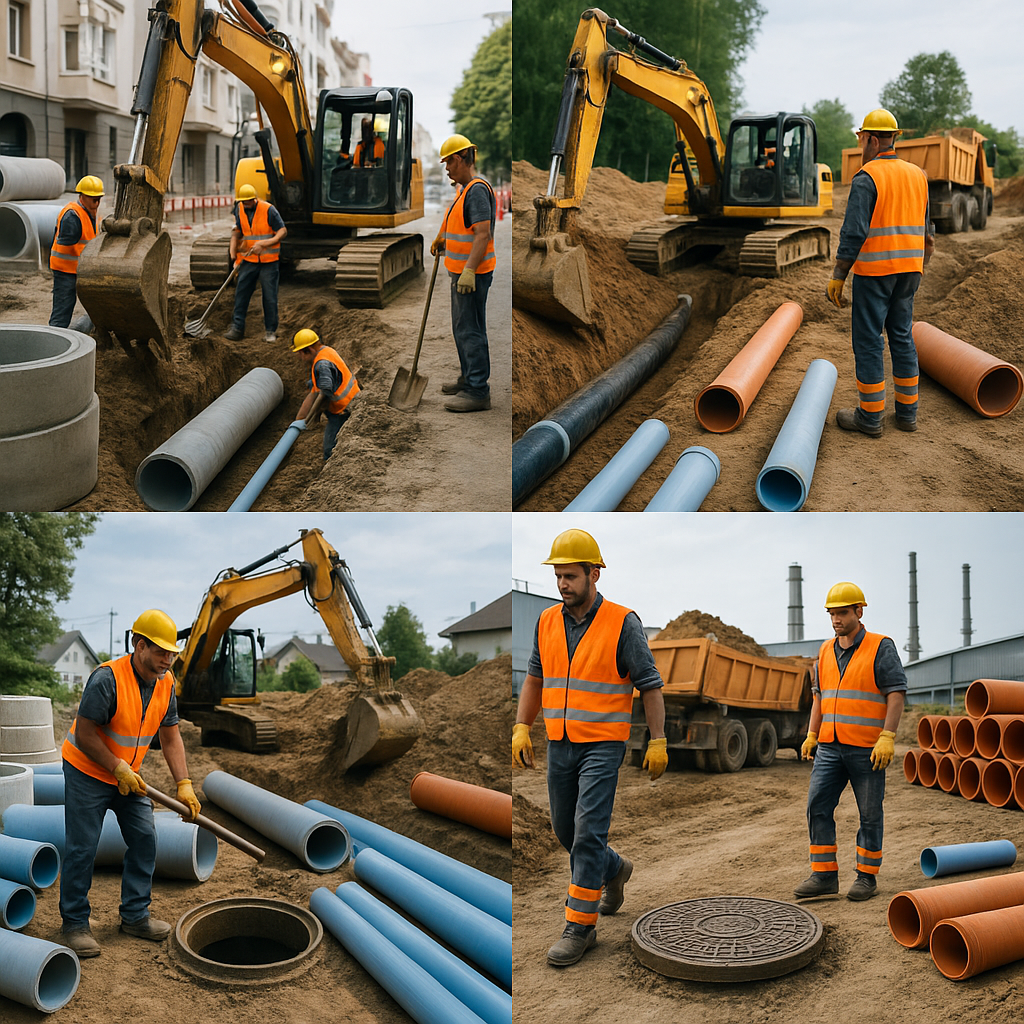Trenchless Repair: Case Studies in 2024 Sewer Systems
Explore case studies highlighting 2024's advanced trenchless repair technologies in sewer inspection, featuring AI and robotics.

Trenchless Repair: Case Studies in 2024 Sewer Systems
Introduction
Trenchless repair technologies have revolutionized the sewer inspection industry, offering innovative solutions that minimize disruption and reduce costs. As we move into 2024, the integration of AI, machine learning, and advanced imaging has further enhanced these methods, making them more efficient and precise. This article explores several case studies and the latest developments in trenchless repair technologies.
The Role of New Technologies
AI and Machine Learning
Recent advancements in AI and machine learning have enabled automatic defect detection, significantly improving the efficiency of sewer inspections. AI systems analyze vast amounts of data to predict maintenance needs, thereby preventing major failures.
Wireless and Portable Systems
The introduction of wireless, portable, and battery-powered inspection systems has increased the maneuverability of sewer inspection tools, especially in confined spaces. These systems offer high-performance capabilities without the limitations of wired equipment.
High-Resolution Imaging
The adoption of 4K and ultra-HD imaging systems allows for clearer visuals, enabling inspectors to detect even the finest cracks and corrosion.
Crawler Robots and Autonomous Systems
Crawler robots and autonomous systems have become integral in trenchless repair, providing improved mobility and data collection capabilities inside pipes. Notable examples include RIDGID’s SeeSnake microDRAIN APX systems and Envirosight’s ROVVER X SAT II crawler.
Industry Standards and Regulations
While specific updates for 2024 are yet to be detailed, the industry continues to emphasize compliance with safety protocols. The focus remains on aging infrastructure and environmental sustainability, guiding the development of new technologies.
Market Trends and Opportunities
Growing Market
The sewer inspection camera market is projected to grow at a CAGR of 5.7% through 2032, driven by infrastructure investments and the need for efficient maintenance solutions.
Emerging Economies
Emerging markets present significant opportunities for growth as they seek to modernize infrastructure with innovative, cost-effective solutions.
Preference for Trenchless Technologies
Trenchless technologies are increasingly preferred due to their cost-effectiveness and minimal disruption compared to traditional excavation methods.
Practical Case Studies
Municipal Success Stories
While specific case studies are not explicitly detailed, the deployment of advanced robotic crawlers and AI-powered inspection systems in municipal sewer maintenance suggests practical success.
Residential Applications
Companies like Deep Trekker Inc. and AM Industrial (UK) Ltd. have successfully implemented crawler camera systems in residential sewer maintenance, demonstrating the practical benefits of trenchless repairs.
Safety Protocols and Best Practices
Remote and Robotic Inspection
Emphasizing remote inspection reduces human exposure to hazardous environments. This practice aligns with industry best practices for safety and efficiency.
Automated Defect Detection
Using AI for automated defect detection helps prioritize necessary repairs, minimizing unnecessary interventions and ensuring timely maintenance.
Cost Implications
While direct pricing details are limited, trenchless repair methods generally reduce overall costs by minimizing excavation and restoration expenses. The initial investment in advanced equipment can be significant, but the long-term savings are substantial.
Conclusion
The evolution of trenchless repair technologies in 2024 underscores a commitment to efficient, non-invasive sewer maintenance solutions. With the integration of AI, high-resolution imaging, and autonomous systems, the industry is poised for continued growth and innovation. Companies that embrace these technologies are likely to lead in the modernization of global infrastructure.